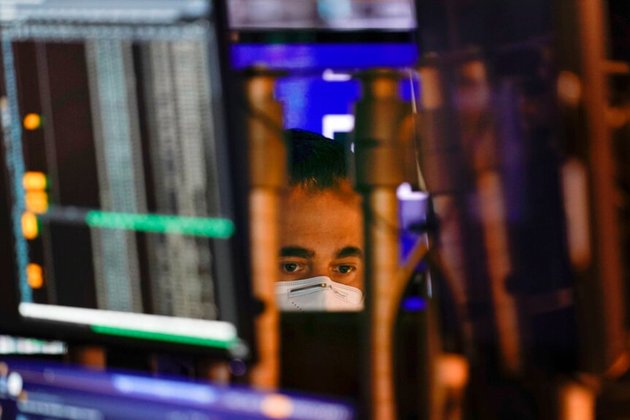

new york – Another volatile day on Wall Street ended with more losses for stocks Thursday, drawing the S&P 500 closer to its first bear market since the beginning of the pandemic.
A bear market means that an individual stock or a stock index, like the S&P 500, has fallen at least 20% from a recent high point.
The index, a benchmark for many funds, fell 0.6% Thursday after easing off a deeper stumble. The latest decline came a day after the S&P 500 had its biggest drop in nearly two years. It’s now down 18.7% from the record high it set early this year.
The Dow Jones Industrial Average fell 0.8% and the Nasdaq slipped 0.3%.
The indexes remain in a deep slump as investors worry that the inflation that’s hurting people as they are shopping for groceries and filling their cars with fuel is also walloping profits at U.S. companies.
‘There’s just still a significant amount of uncertainty,” said Lindsey Bell, chief markets and money strategist at Ally Invest, “especially in regard to what the [Federal Reserve] is going to do, how that’s going to impact growth in the future, and additionally, where the heck is inflation going from here.’
The S&P 500 fell 22.89 points to 3,900.79. The Dow dropped 236.94 points to 31,253.13. The Nasdaq slid 29.66 points to 11,388.50. The three indexes are on pace to extend a string of at least six weekly losses.
Gainers
Smaller-company stocks held up better than the broader market. The Russell 2000 rose 1.38 points, or 0.1%, to 1,776.22.
Rising interest rates, high inflation, the war in Ukraine and a slowdown in China’s economy have caused investors to reconsider the prices they’re willing to pay for a wide range of stocks, from high-flying tech companies to traditional automakers.
Wall Street is also worried about the Federal Reserve’s plan to fight the highest inflation in four decades. The Fed is raising interest rates aggressively, and investors are concerned that the central bank could cause a recession if it raises rates too high or too quickly.
The 10-year Treasury pulled back to 2.85% from 2.88% late Wednesday, but it has been generally rising as investors prepare for a market with higher interest rates. That has also pushed up mortgage rates, which is contributing to a slowdown in home sales.
The pile of concerns on Wall Street has made for very choppy trading and big swings between gains and losses within any given day.
Technology stocks have been some of the most volatile holdings. The sector includes heavyweights like Apple that have lofty valuations, which tend to push the market more forcefully up or down. Technology stocks fell Thursday, accounting for a big share of the S&P 500’s drop.
Household goods companies, grocery store operators and food producers fell broadly. General Mills fell 2.1% and Clorox fell 5.3%.
Retailers and other companies that rely on direct consumer spending mostly rose. Amazon added 0.2% and Expedia climbed 5.3%.
24World Media does not take any responsibility of the information you see on this page. The content this page contains is from independent third-party content provider. If you have any concerns regarding the content, please free to write us here: contact@24worldmedia.com

A Brief Look at the History of Telematics and Vehicles

Tips for Helping Your Students Learn More Efficiently

How To Diagnose Common Diesel Engine Problems Like a Pro

4 Common Myths About Wildland Firefighting Debunked

Is It Possible To Modernize Off-Grid Living?

4 Advantages of Owning Your Own Dump Truck

5 Characteristics of Truth and Consequences in NM

How To Make Your Wedding More Accessible

Ensure Large-Format Printing Success With These Tips

4 Reasons To Consider an Artificial Lawn

The Importance of Industrial Bearings in Manufacturing

5 Tips for Getting Your First Product Out the Door